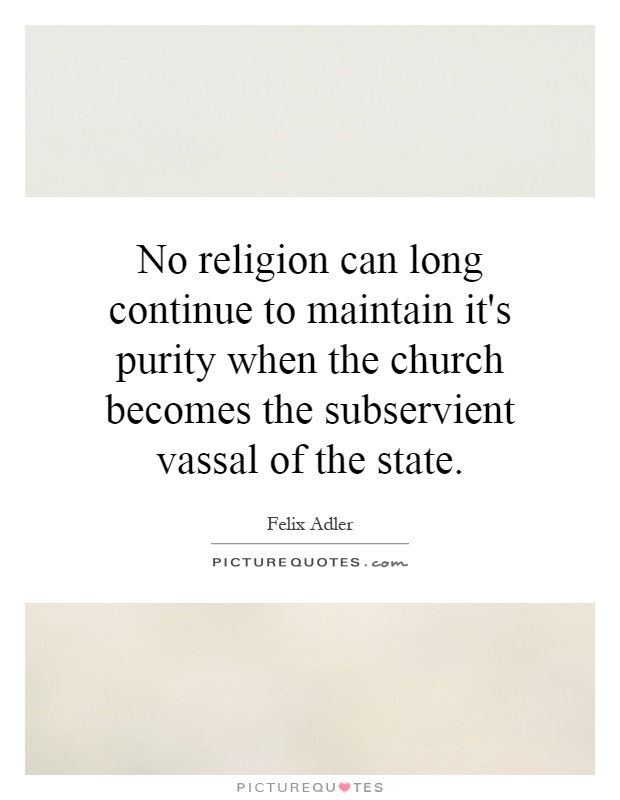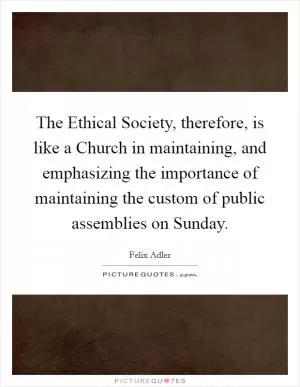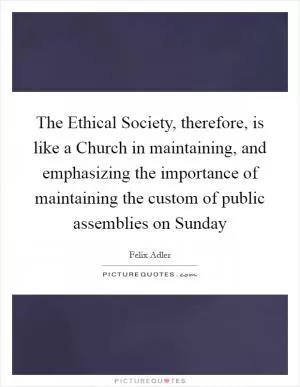No religion can long continue to maintain it's purity when the church becomes the subservient vassal of the state

No religion can long continue to maintain it's purity when the church becomes the subservient vassal of the state
Felix Adler, the founder of the Ethical Culture movement, believed strongly in the separation of church and state. He argued that when a religion becomes subservient to the state, it loses its purity and integrity. Adler believed that religion should be a force for good in society, promoting ethical behavior and social justice, rather than being used as a tool of the government to control and manipulate the population.Adler's views on the relationship between religion and the state were shaped by his own experiences growing up in a Jewish household in Germany. He witnessed firsthand the ways in which religion could be co-opted by the government to serve its own interests, leading to corruption and moral decay. This experience led Adler to reject traditional organized religion and instead advocate for a more humanistic and ethical approach to spirituality.
Adler believed that true religion should be a personal and individual experience, based on a commitment to ethical principles and a desire to make the world a better place. When the church becomes subservient to the state, it loses its independence and autonomy, becoming a mere tool of the government. This compromises the integrity of the religion, as it is no longer free to speak truth to power and challenge injustice.
Adler's views on the separation of church and state were radical for his time, but they continue to be relevant today. In an era where religious extremism and political manipulation are on the rise, it is more important than ever to uphold the principles of religious freedom and independence. When the church becomes a vassal of the state, it loses its ability to serve as a moral compass for society, and instead becomes a pawn in the hands of those in power.












 Friendship Quotes
Friendship Quotes Love Quotes
Love Quotes Life Quotes
Life Quotes Funny Quotes
Funny Quotes Motivational Quotes
Motivational Quotes Inspirational Quotes
Inspirational Quotes